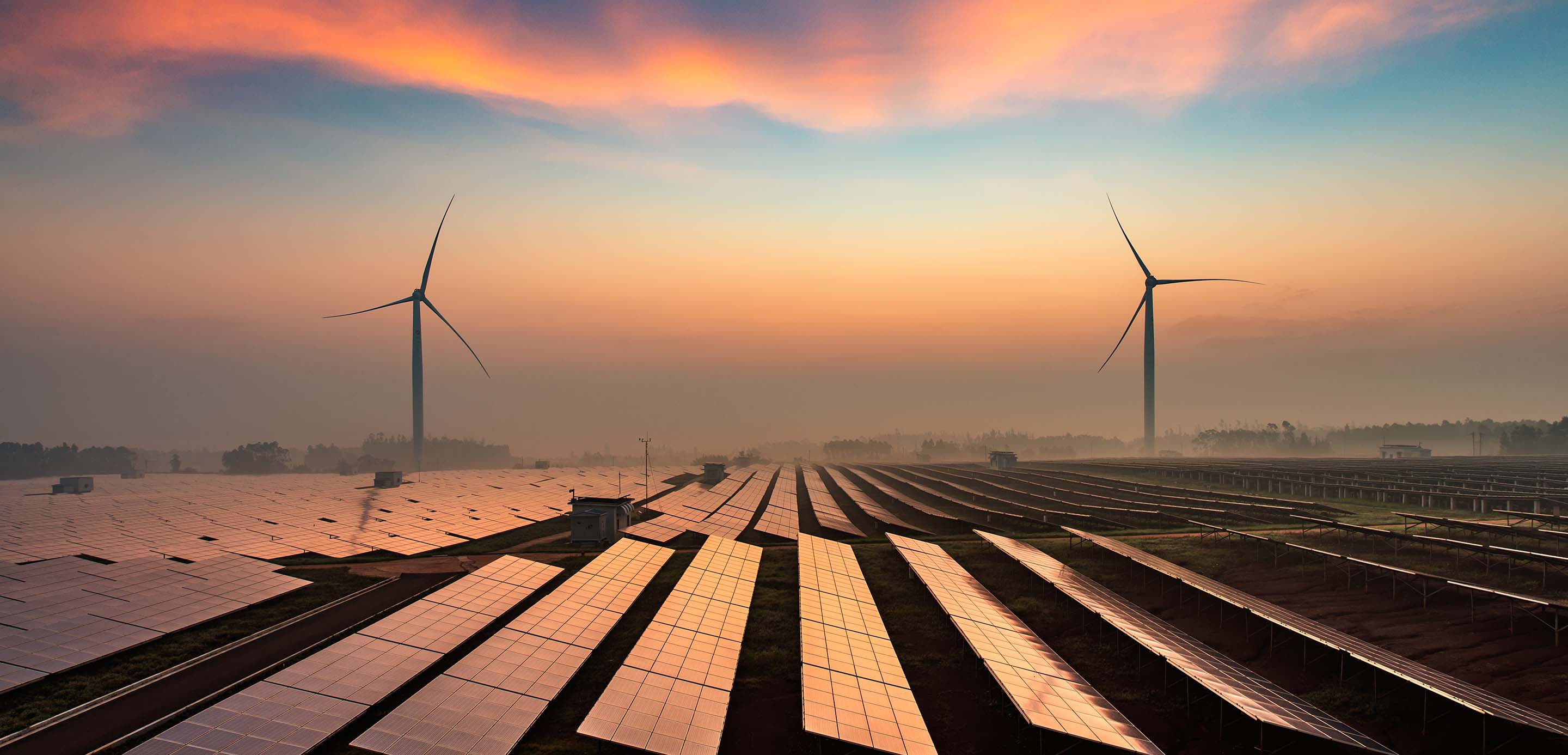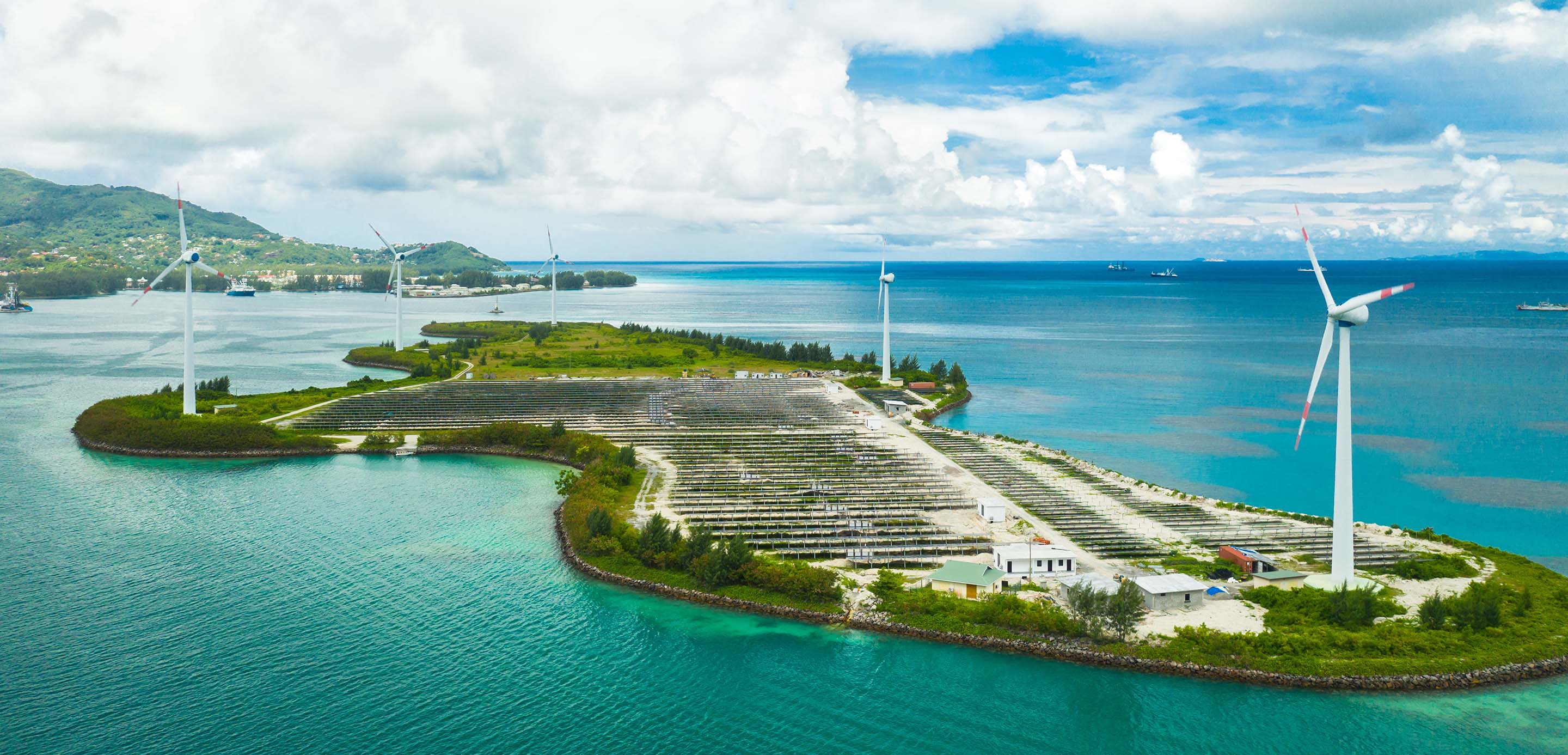- Article

- Sustainability
- Economic
- Transition to Net Zero
Investing in Tomorrow’s Energy Infrastructure
As we approach the energy transition amidst an ongoing global pandemic, climate change and geopolitical tensions, the critical questions we face include, what will tomorrow's energy landscape look like? And how will we finance the energy future we need?
At this year's CERAWeek energy conference, Gerry Keefe, Head of Global Banking, Americas, HSBC, joined a panel to explore what tomorrow's energy infrastructure will look like. The importance of alternative fuels to the energy transition, the immense capital investment needed, and how innovative financial products like FAST-Infra will help close the gap, were all key takeaways.
Beyond oil
We know the current energy mix will need to change, but what will the energy landscape of the future look like – and how will we get there. Natural gas is expected to play a critical role in the energy transition to make the planet greener and cleaner – it's a low cost, low-carbon fuel that is a secure resource from a geopolitical perspective.
However, natural gas is just part of the puzzle. "I think the way we look at the energy transition is that to us, oil and gas is the bridge that the market is going to walk across from the current fossil fuel-oriented energy, power and transmission sources to a lower-carbon future," Keefe explained.
"And I think that anyone who imagines that that bridge doesn't exist without gas is kidding themselves. I think that's just reality. For us, the energy transition is about working in partnership with our clients to walk across that bridge in alignment with the Paris agreement and related principles."
Mapping the capital transition
These changing dynamics mean that banks and other financial providers are quickly recognizing the immense amount of funding needed to aid the global transition and the critical role they play in providing this capital.
“We’ve committed $1 billion to venture growth finance Initiatives," Keefe said during the panel. "Of that, 250 million will support early stage, often pre-revenue, clean tech innovation companies at scale. That is a huge commitment to sustainable financing.”
Cleary, innovation is critical. But infrastructure also needs to be designed, built and operated in a sustainable way to unlock the world from a high-emissions trajectory. In recent years, private sector finance hasn’t been flowing in significant size to fund infrastructure projects of significant scale.
To overcome this, HSBC helped to establish FAST-Infra, an industry-led, public-private partnership, in conjunction with the International Finance Corporation, Organization for Economic Co-operation and Development, Global Infrastructure Facility and Climate Policy Initiative.
“FAST-Infra really addresses the bankability issue in infrastructure,” said Keefe. “It's oriented toward emerging markets, but equally applicable in developed markets. It’s about enabling better, fairer and faster project development, transparent project financing, and efficient risk management.”
Opening up green banking
"Given the flow of cash into mandates that pursue energy transition as an agenda, I think the further to the zero-carbon end of the continuum a project is, the more financeable it's going to be,” said Keefe. “The one thing I would advocate is that any project of scale in hydrogen or carbon capture that makes it through financing and generates cash flow that people can look at and model, they should share them with the markets. The more people are open with that kind of financing information, the wider the financial markets will open.”
Further insights

Roadmaps for energy transition
Examining the pathways to a net-zero world, how we can get there, and how we address the short-term challenges of shifting geopolitical shocks and the longer-term challenges around financing and securing a just transition, were the focus of a CERAWeek session featuring Jan Laubjerg, Global Head of Natural Resources at HSBC, alongside Amos Hochstein, Senior Advisor for Global Energy Security, United States Department of State, and Carlos Pascual, Senior Vice President, Global Energy and International Affairs, S&P Global.

Leveraging existing talent – and infrastructure – to fight climate change
Zoë Knight, Managing Director and Group Head of the HSBC Centre of Sustainable Finance, shares her key takeaways from CERAWeek, where she was a speaker. Some 5,000 people, including many experts from the oil and gas industries, came together to discuss industry events and the challenges facing the sector.



